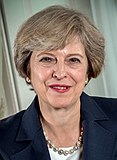| |||||||||||||||||||||||||||||||||||||||||||||||||||||||||||||||||||||||||||||
All 59 Scottish seats to the House of Commons | |||||||||||||||||||||||||||||||||||||||||||||||||||||||||||||||||||||||||||||
|---|---|---|---|---|---|---|---|---|---|---|---|---|---|---|---|---|---|---|---|---|---|---|---|---|---|---|---|---|---|---|---|---|---|---|---|---|---|---|---|---|---|---|---|---|---|---|---|---|---|---|---|---|---|---|---|---|---|---|---|---|---|---|---|---|---|---|---|---|---|---|---|---|---|---|---|---|---|
| Turnout | 66.4%, | ||||||||||||||||||||||||||||||||||||||||||||||||||||||||||||||||||||||||||||
| |||||||||||||||||||||||||||||||||||||||||||||||||||||||||||||||||||||||||||||
 Coloured according to the winning party's vote share in each constituency | |||||||||||||||||||||||||||||||||||||||||||||||||||||||||||||||||||||||||||||
A general election was held in the United Kingdom on Thursday 8 June 2017; all 59 seats in Scotland were contested under the first-past-the-post electoral system.
The general election in Scotland was fought in the aftermath of the 2016 Scottish Parliament election, in which the Scottish National Party (SNP) won a third term in government but lost its overall majority in the Scottish Parliament. At that election, the Scottish Conservatives increased their number of MSPs, overtaking Labour as the largest opposition party. The 2016 EU referendum was held a month later on Thursday 23 June, and the final result was for the United Kingdom to leave the EU; despite Scotland voting 62.0% for 'Remain'. Negotiations were due to begin shortly since invocation of Article 50 of the Treaty on European Union in March 2017, which was expected to dominate the snap general election campaign.[1]
In line with the Fixed-term Parliaments Act 2011, an election had not been due until 7 May 2020, but a call for a snap election by Prime Minister Theresa May received the necessary two-thirds majority in a 522–13 vote in the House of Commons on 19 April 2017.[2] The Conservative Party, which has governed nationally since 2010, was defending a majority of 17[3] against the Labour Party, the official opposition. The third-largest party was the SNP, which had won 56 of the 59 Scottish seats at the 2015 general election.
The election resulted in the SNP remaining the largest single party in Scotland, despite losing 21 seats to pro-union candidates. This marked a 13% drop in support for the SNP, down to 36.9% of the vote. The Conservatives, at 28.6%, doubled their share of the vote and won 13 seats, while Labour won seven seats and the Liberal Democrats four seats. The Conservatives recorded their best result in Scotland since 1983 (in terms of seats won) or 1979 (in terms of share of the popular vote). Until this election the Conservatives had not been the second-largest party in Scotland since 1992 and had not been the largest unionist party in Scotland since 1955.
Defeated SNP MPs included: former SNP leader and former First Minister of Scotland Alex Salmond,[4] SNP Westminster leader Angus Robertson,[5] SNP Chief Whip Mike Weir;[6] as well as John Nicolson[7] and Tasmina Ahmed-Sheikh.[8] Commentators suggested that the election might reduce the SNP's case for a second referendum on Scottish independence.[9][10][11] Following the election, the SNP leader Nicola Sturgeon acknowledged that her party's plans for a second referendum were 'undoubtedly' a factor in the election results. The SNP also abandoned its fundraiser for a possible referendum after raising only half of its £1,000,000 target, just over a week before its preset deadline.[12]
- ^ Fidler, Stephen (18 April 2017). "Brexit Set to Dominate U.K.'s Snap Election". The Wall Street Journal. Retrieved 21 April 2017.
- ^ "Theresa May seeks general election". BBC News. 18 April 2017. Retrieved 18 April 2017.
- ^ "Current State of the Parties". UK Parliament. Retrieved 21 April 2017.
- ^ "Results for the Gordon constituency". BBC News. Retrieved 23 April 2018.
- ^ "Results for the Moray constituency". BBC News. Retrieved 23 April 2018.
- ^ "Results for the Angus constituency". BBC News. Retrieved 23 April 2018.
- ^ "Results for the Dunbartonshire East constituency". BBC News. Retrieved 23 April 2018.
- ^ "Results for Orchil & South Perthshire constituency". BBC News. Retrieved 23 April 2018.
- ^ Johnson, Simon; Henderson, Barney (8 June 2017). "Scotland election results: Alex Salmond defeated and SNP suffer huge losses as Tory chances boosted north of the border". The Daily Telegraph. Retrieved 9 June 2017.
- ^ "General election 2017: SNP lose a third of seats amid Tory surge". 9 June 2017. Retrieved 9 June 2017.
- ^ Thomas, Natalie; Dickie, Mure (8 June 2017). "Scottish election results strike blow to SNP plans for IndyRef2". Financial Times.
- ^ "SNP removes independence referendum fundraising page". BBC News. 13 June 2017.



